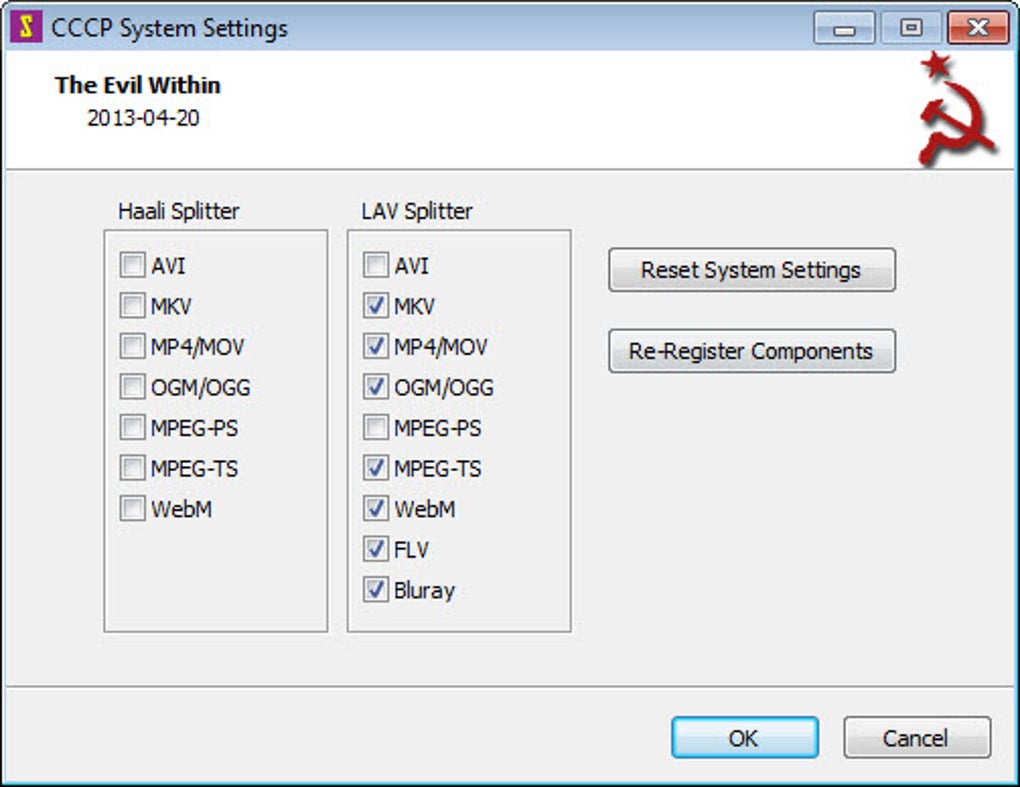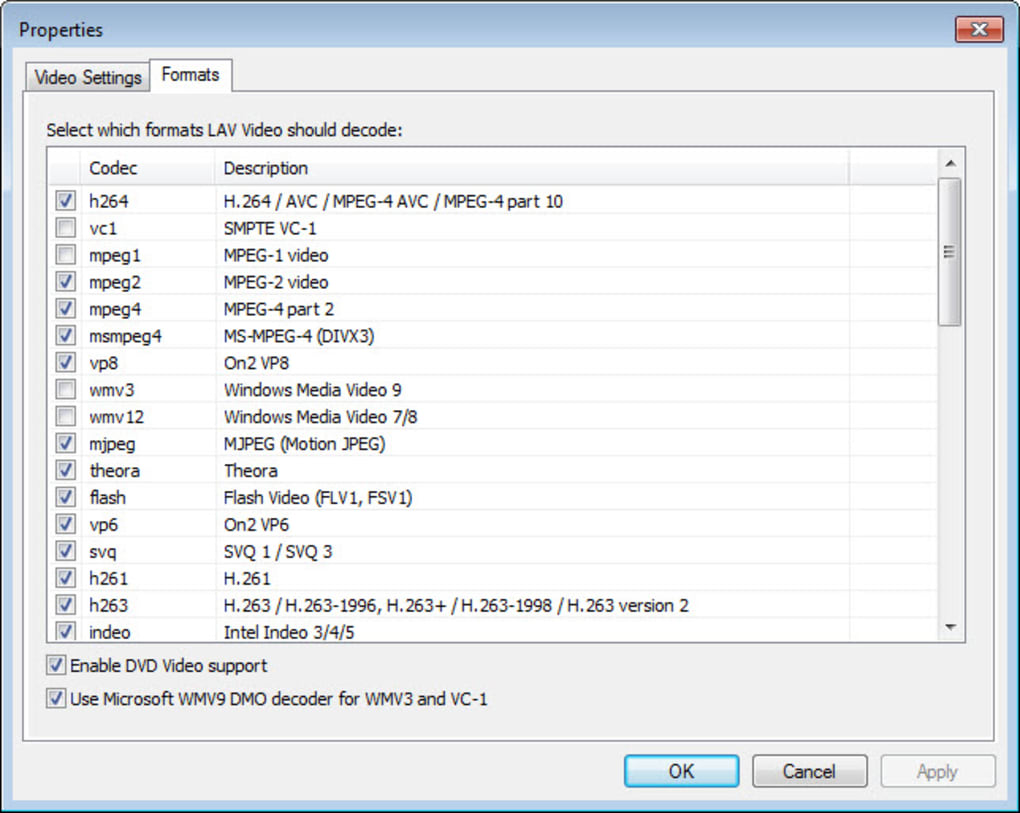The Combined Community Codec Pack (CCCP) is a free and open-source collection of codecs and filters designed to enhance video playback capabilities on Windows systems. While often referred to as a codec pack, its developers playfully describe it more accurately as a filter pack, highlighting its role in processing and improving video streams rather than just providing the fundamental decoding components. The name itself, a somewhat tongue-in-cheek reference to the “Union of Soviet Socialist Republics” (USSR), reflects the project’s collaborative nature and its aim to provide a robust and reliable solution for handling various video formats. This guide will delve into the features, history, and impact of CCCP, exploring its strengths and weaknesses compared to other codec packs available.
CCCP’s History and Development
CCCP emerged as a response to the inadequacies and often conflicting functionalities found in other codec packs circulating at the time. Many existing solutions suffered from compatibility issues, leading to playback problems or even system instability. The creators of CCCP sought to address these shortcomings by meticulously assembling a comprehensive yet streamlined collection of codecs and filters, prioritizing compatibility and stability. The project fostered a community-driven approach, accepting contributions and feedback to continuously improve and refine its offerings.
This dedication to community involvement is a key characteristic of CCCP’s development. Unlike proprietary codec packs, which often rely on closed-source development, CCCP embraced transparency and openness, allowing users and developers alike to participate in shaping the project’s trajectory. This collaborative spirit helped to ensure the pack’s ongoing maintenance, updates, and adaptation to evolving video formats.

Features and Functionality
CCCP’s core functionality revolves around enabling smooth playback of a vast array of video and audio formats. Its inclusion of various filters and codecs allows users to overcome common playback problems, ensuring compatibility with files that may not be supported by default Windows media players. This extensive support extends to both popular and less common formats, making it a versatile tool for users with diverse media collections.
The pack’s components typically include:
- Codecs: These are the fundamental tools that decode and encode audio and video data, allowing your system to understand and process the information contained within media files. CCCP includes codecs for handling many common formats such as AVI, MP4, MKV, and more.
-
Filters: CCCP’s emphasis on filters distinguishes it from simpler codec packs. Filters act as intermediary processes, modifying or enhancing video and audio streams before they reach the playback software. These filters can perform various operations, including subtitles rendering, video scaling, and color correction, thereby improving the overall viewing experience.
-
Media Players: While CCCP doesn’t inherently include a media player, it integrates well with popular players such as Media Player Classic (MPC), making it a seamlessly integrated part of the media playback ecosystem. This integration streamlines the process, avoiding the configuration issues often seen when multiple codec packs are installed simultaneously.
-
Splitter: A key component of CCCP is its inclusion of a reliable splitter. Splitters have the critical role of separating the different streams (audio, video, subtitles) within a container file (like MKV or AVI). A reliable splitter is crucial for ensuring that each component is processed correctly and without errors. CCCP’s often-included Haali Media Splitter is well-regarded for its robustness.
Advantages of Using CCCP
CCCP boasts several key advantages over alternative codec packs:
-
Comprehensive Format Support: CCCP offers extensive support for a wider range of video and audio formats than many competing packs, minimizing the likelihood of encountering playback errors.
-
Ease of Use: Installation and configuration of CCCP are relatively straightforward, making it user-friendly even for users without advanced technical expertise. The pack aims to work out-of-the-box with minimal intervention.
-
Stability and Reliability: Its reputation for stability stems from its development strategy of carefully selecting and integrating components, minimizing conflicts and improving overall system performance. It’s designed to cause minimal disruption to existing system configurations.
-
Community Support: The open-source nature of CCCP facilitates community support and engagement, providing a platform for users to seek assistance, report issues, and contribute to ongoing development.
-
Minimal Configuration: Unlike some codec packs that require extensive manual configuration, CCCP strives for simplicity, often using default settings which work seamlessly for most users.
Disadvantages and Considerations
While CCCP offers numerous benefits, potential users should be aware of some limitations:
-
Potential Conflicts: Installing CCCP alongside other codec packs may lead to conflicts, causing playback issues or system instability. It’s usually recommended to uninstall other codec packs before installing CCCP.
-
Limited Updates: CCCP has not seen major updates in recent years, meaning newer codecs may not be included. This lack of continuous updates is a critical factor to consider, and is one of the reasons users often explore alternatives.
-
Windows-Only: CCCP is exclusively designed for the Windows operating system, making it inaccessible to users of other platforms.
- Dependence on Third-Party Components: CCCP relies on various third-party libraries and components, making it susceptible to potential issues associated with those components.
CCCP Versus Alternative Codec Packs
CCCP faces competition from other popular codec packs such as K-Lite Codec Pack and Media Player Codec Pack. While these alternatives also offer extensive format support, CCCP distinguishes itself through its design philosophy, aiming for a more streamlined, less intrusive integration with the system. Other codec packs often feature a more extensive and potentially confusing range of options and configurations. The choice of codec pack depends largely on individual needs and preferences. K-Lite, for example, offers several different variations, each catering to different levels of user experience and technical expertise.
Conclusion
The Combined Community Codec Pack represents a significant contribution to the landscape of media playback tools. Its collaborative development, emphasis on stability and compatibility, and comprehensive format support have made it a favored choice for many users. However, its lack of recent major updates and potential for conflicts with other codec packs are crucial factors to consider. The decision of whether or not to use CCCP ultimately rests on the user’s specific requirements and technical comfort level. If seamless playback of a wide array of formats with minimal configuration is prioritized, and the user is willing to manage potential conflicts with other software, then CCCP might be a suitable option. However, users seeking the latest codecs and frequent updates may find more suitable, albeit potentially more complex, alternatives.

File Information
- License: “Free”
- Latest update: “July 11, 2023”
- Platform: “Windows”
- OS: “Windows 10”
- Language: “English”
- Downloads: “256.7K”
- Size: “10.50 MB”
















